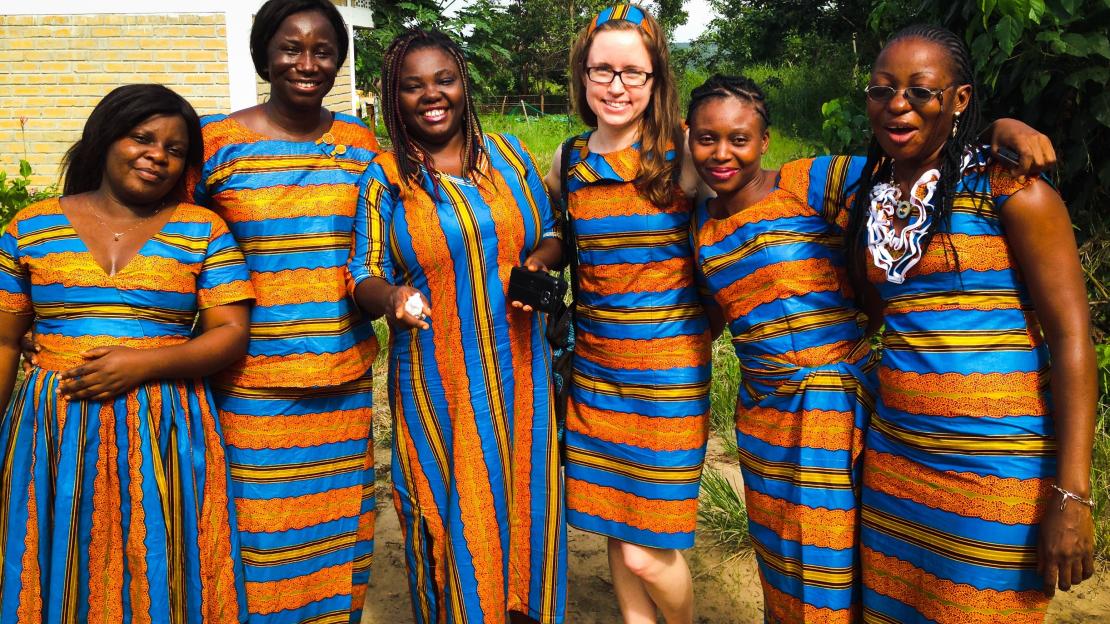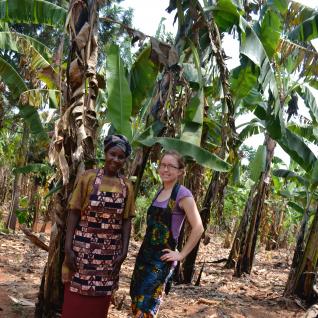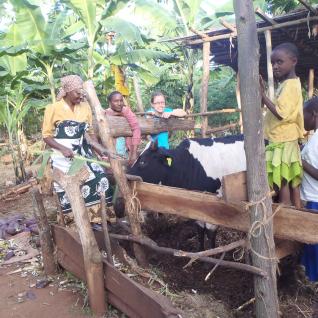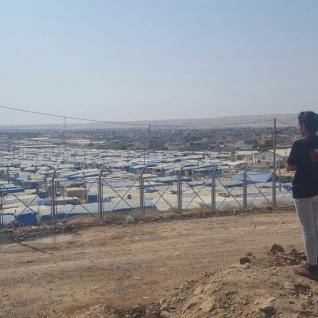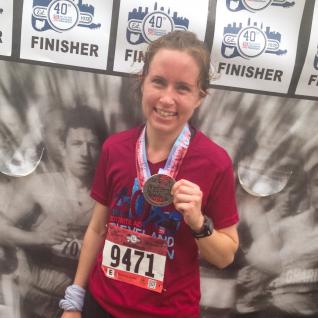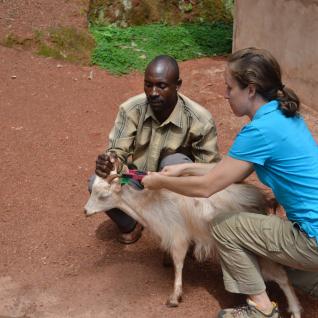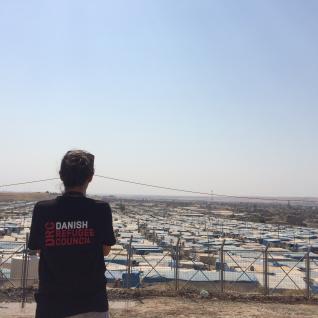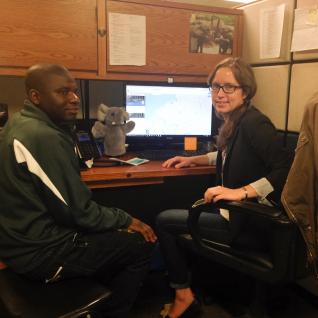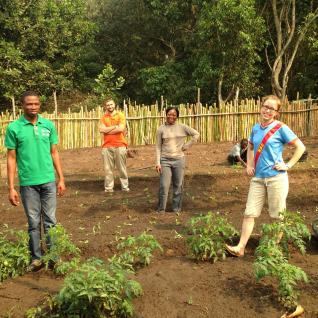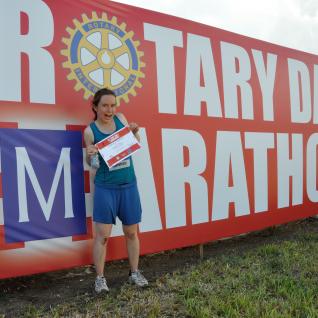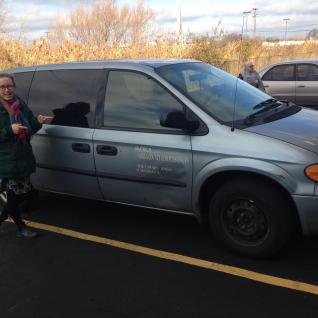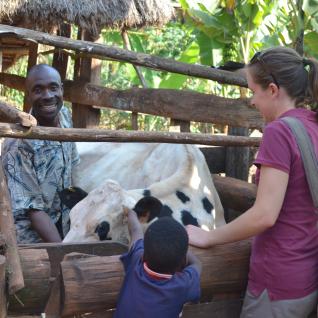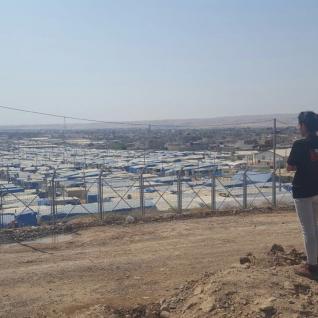If you’re wondering what students in International Development Studies will actually do, just ask these two. Barbara Forbes and Tamana Zamir, two recent graduates, are already working hard on programs to aid refugees. They’re so busy that we had trouble even getting in touch. Work schedules, time differences and unreliable Internet access all conspired to make a connection nearly impossible. At last we were able to connect by email. Here are some highlights of that electronic conversation. — Chris Garbutt
TZ: I am working with the Danish Refugee Council, an international NGO [non-governmental organization], where I monitor and evaluate all Iraqi displaced persons and Syrian refugee response programs. My current role as monitoring and evaluation co-ordinator has required me to frequently travel within Iraq, and to neighbouring countries. I lead a team of 12 staff across Iraq.
BF: I’m in Cleveland through a year-long volunteer service program called the Jesuit Volunteer Corps. I help newly arrived refugees get to the doctor. In August, I start a new job with an American NGO where I’ll be working in their country office in Kinshasa, Democratic Republic of the Congo.
TZ: My family immigrated to Canada when I was young, from Azerbaijan, where my parents were international students at Baku State University. At 17, I had the opportunity to visit Afghanistan and I was excited to learn more about where I came from [Tamana is Afghani]. The trip quickly became one of the most eye-opening experiences of my life. It made me realize how lucky I was to be Canadian and for the opportunities this country has given me and my family.
BF: My mother is a proponent of education outside the classroom. When I expressed a desire to visit relatives in England, she responded that when I was older I would be able to travel there —and elsewhere — by myself. The support my parents provided has inspired me because their acceptance of my travel and study choices (and willingness to pick me up from the airport) makes it easy for me to go where peers from my hometown might not consider.
TZ: The biggest challenge of undergrad was being an independent student and having to financially support myself. I had multiple jobs and a full course load. When I think back, I have no idea how I made it through and I wish I had the same level of energy now as I did then.
BF: My Co-op placement was to be project management advisor at the country office of VSO Tanzania: editing reports, planning an international board meeting visit and leading the orientation for new volunteers. However, only a few weeks into my placement I was struggling to adapt to the office environment, as I knew the perspective of a foreigner in the big city of Dar es Salaam was much different than day-to-day life is for Tanzanians. When I heard of an opportunity to be a livestock development advisor, I presented myself as a candidate —emphasizing my childhood on an Alberta beef feedlot and summer job as an agronomist assistant. Talking with and learning from these farmers formed the basis of research for my IDS thesis.
TZ: I found my IDS professors extremely inspiring. Their passion for their research and their wealth of knowledge shone through their lecture classes. It had a great impact on the young Tamana who had so much thirst for knowledge. I still keep in regular contact with some of the faculty members. I was also very involved with the World University Service of Canada local committee. Our major responsibility was the Student Refugee Program, in which we sponsored refugee students from Kenya, to pursue their studies at U of T.
BF: It’s been a treat to meet up with other IDS students in far-flung places (they may or may not have been in my year). It’s made for brilliant meetings whether it’s when I need a room for the night in London or am hosting an IDSer for Halloween in Dar es Salaam. I’d love to hear if there are any UTSC grads in the Democratic Republic of the Congo, so I might meet up with them!
TZ: Seeing our hard work actually having an impact is rewarding. It could be anything from providing drinking water, food, or shelter in a camp. It can also be getting a water pump station to work again in a village after it was damaged by the conflict. It is especially rewarding when I see individuals of different religious and ethnic backgrounds develop lasting friendships beyond our project interventions.
To read more about Forbes and Zamir, visit utsccommons.ca.
